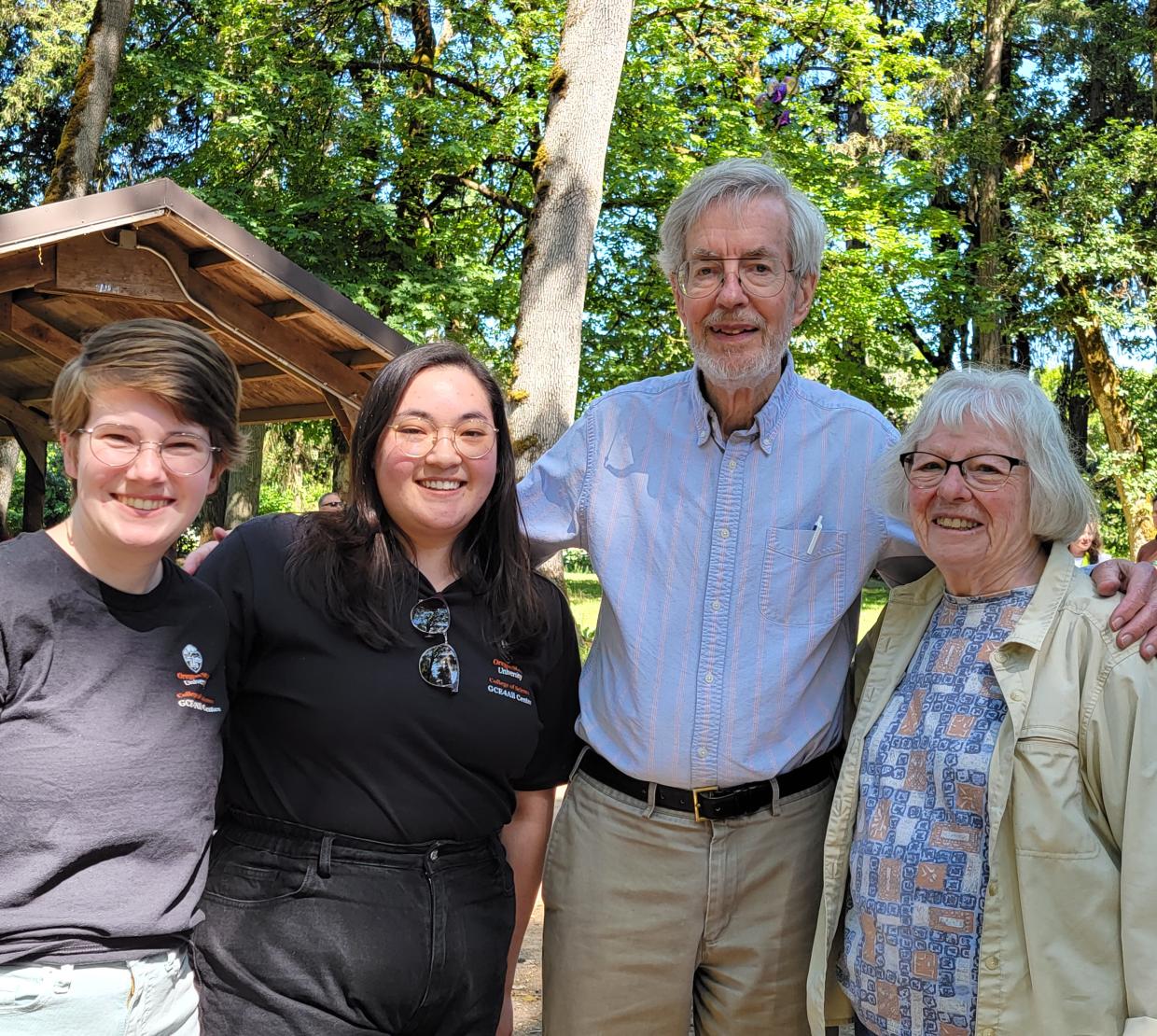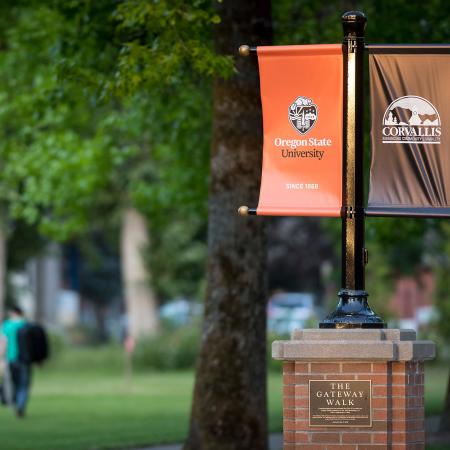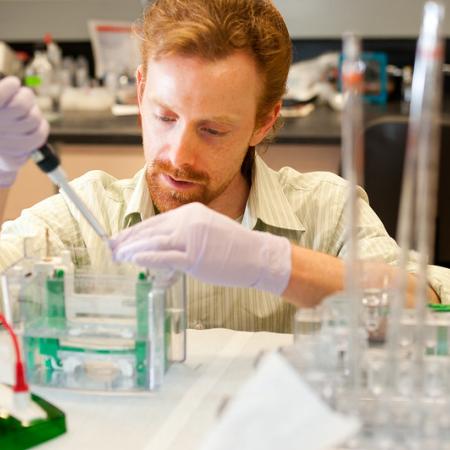Being a valued member of a research and teaching community is one of the best parts of academic life. For biochemistry and biophysics Ph.D. student Sarah Louie, that recognition has come in part from earning the 2023-2024 Mathews Graduate Fellowship in the Department of Biochemistry & Biophysics.
This award was established in 2015 by Emeritus Distinguished Professor Chris Mathews and his wife Kate Mathews. It is awarded based on academic merit, teaching acumen and research potential, and provides full funding for the academic year.
"Sarah stood out amongst all their peers. They are an extremely hard worker in the lab, and very determined to get the results that they were looking for," Professor Rick Cooley, Louie's research advisor, said.
Louie grew up in Denver, Colorado and went to University of Colorado Denver for their bachelor's degree in integrative biology and master's degree in biochemistry.
Coming to Oregon from Colorado, Louie has found the lifestyle similar. Both states have outdoorsy culture, but they swapped the towering Rocky Mountains for the windswept beaches of the Oregon coast. Moving away from family has been a major change for Louie.
"I moved away from my family, which was a little difficult at first. But I think I found quite a supportive community here," Louie said.
The importance of a strong science education
The Mathews highly value teaching, and including teaching acumen as a criterion for the fellowship reflects that. Unlike most external fellowships which prioritize research, this internal fellowship allows the department more latitude to take into account factors such as teaching.
"I would say that Chris and Kate were invested in the success of the department, and we are both a teaching and research institution. And so it felt like the fellowship should exemplify students who are able to meet both of those expectations," said Lauren Dalton, who worked with Louie on an introductory cellular and molecular biology course.
While Louie won't be teaching this academic year due to being on fellowship, they consider science education to be a key part of what put them on the path they are on today.
"I think I just had good science teachers for most of my life," they said. “You can have really boring subjects be made interesting by good teachers.”
Fittingly, Louie stood out as an exceptional and dedicated TA during their first year. "I really had a good time teaching with them," Dalton said.
Outside of science education, Louie has also stood out for their dedication to research.
Unraveling the mysteries of genetic code expansion
While at UC Denver, Louie worked with Professor Bradley Stith in his lab studying the Src protein.The protein appears in many rapidly dividing cells, such as cancer cells. Using the embryos of the African claw-footed frog (Xenopus laevis) as a model organism, they studied the molecular interactions of the Src protein to better understand exactly how it works.
After first-year lab rotations at Oregon State, Louie joined Rick Cooley’s lab within the Center for Genetic Code Expansion. Genetic code expansion is just what it sounds like, altering the genome of an organism to include artificial amino acids.
"In their 10 week rotation they got more progress done on that particular project they were working on than any of the prior students, including myself, had for the last two years," Cooley said.
Louie will continue their work in Cooley’s lab, encoding non-hydrolyzable phospho-serine—an amino acid—into proteins using genetic code expansion.
The goal is “to see how adding in different modifications changes the structure and function," Louie explained.
For a substance to be hydrolyzable, it must be chemically broken apart in water. Phospho- refers to a phosphate group attached to a substance. A phosphate group is a molecule with one phosphorus and four oxygen atoms. For example phosphoric acid is a phosphate. So, non-hydrolyzable phospho-serine is a modified version of the serine amino acid that isn't water soluble and has a phosphate group tacked on.
As water is the medium of life, modifying serine so it doesn’t disintegrate in water makes it easier to work with.
The process of genetic code expansion allows them to add this modified serine amino acid to an organism, in this case the common bacteria E. coli. Louie’s work involves inserting artificial amino acids into proteins or enzymes and observing how they change.
This research has the potential to open doors to new biotechnologies and treatments, with cancer as a major area of interest. Many cancers are caused by otherwise highly-regulated enzymes becoming deregulated. In the case of the molecules Louie is working with, an enzyme might lose or gain a phosphate group.
"It's basically this constant cycle of technology development and technology application," Cooley said.
The continuous process of iteration this research requires isn't easy and can be frustrating. It demands an understanding of ideas from disparate fields, such as molecular biology, evolutionary biology and structural biology, but that is a challenge that Louie is up for. Receiving this fellowship has made them more eager than ever to continue unraveling the field’s mysteries.
"Finding out I won was a boost for my confidence," they said. "It's reassuring that I'm where I'm supposed to be right now."




